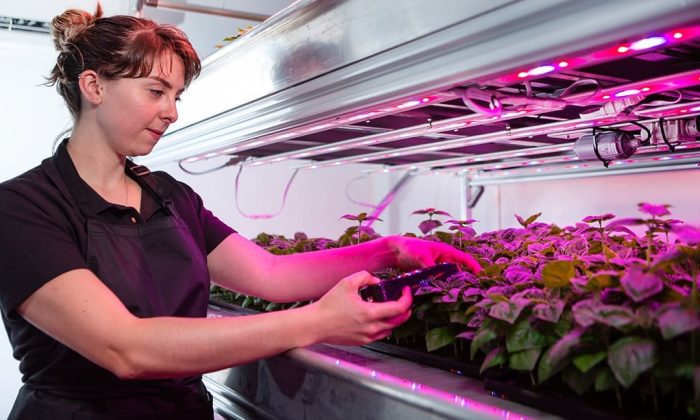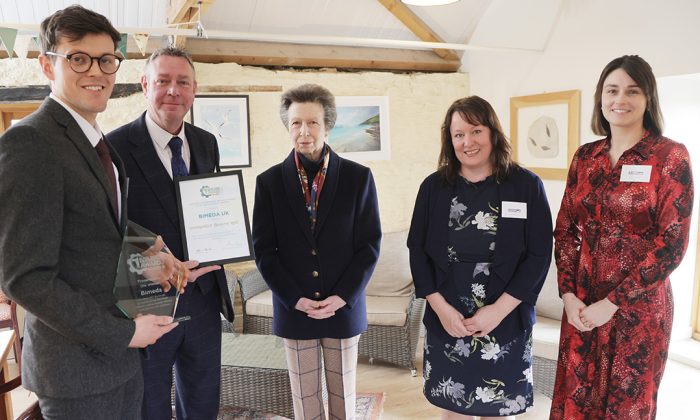Our Meet the Team series profiles the individuals who make up the UK Agri-Tech Centre, offering a glimpse into their stories and ambitions for the sector. Up next is Dr Harry Langford, Head of Sustainability.
For Dr Harry Langford, addressing complexity and embracing collaboration is essential to enhancing sustainability and food security.
How did you come to work in this sector?
I began my career as an environmental consultant, analysing a variety of environmental impacts on land and working out how best to mitigate them. This experience sparked my interest in soil science, leading me to pursue a PhD in environmental engineering. My research focused on soil microaggregate structure and function, particularly how soil biology interacts with minerals to form these aggregates. After completing my PhD, I worked in academia as a postdoctoral researcher, exploring the critical role that soil aggregates play in maintaining soil health and promoting sustainable agriculture.
Before joining the UK Agri-Tech Centre, I was the Knowledge Exchange and Innovation Manager for the N8 Agri-Food Resilience Programme, a partnership across the Northern 8 universities. My role involved addressing agri-food resilience on a systems scale, particularly in soil health, sustainable production, and urban and controlled environment agriculture. To enhance sustainability and food security, we need to address complexity and embrace collaboration across the agri-food system. These experiences shaped my journey and brought me to CHAP and eventually to the UK Agri-Tech Centre, where I continue to focus on sustainability and innovation in agriculture.
What does sustainability mean to you?
For me, sustainability is about combining innovative technologies with incremental improvements in practice to enable a resilient and adaptive food system. It involves collaborative efforts to efficiently balance resources, ensuring environmental stewardship alongside productivity within production systems.
The ultimate goal is to secure our food supply for the future while protecting our production environment and producing high-quality food sustainably.
Agri-tech is set to play a defining role as agri-food businesses focus on driving growth and sustainability. As published in our recent ‘the future of Agri-Tech‘ report, sustainable production is the top priority for businesses in the agriculture and food industries. Additionally, 21% are eager to investigate net-zero technologies, and another 21% are interested in circular economy technologies.
What is an exciting initiative that your Sustainability team is currently working on?
Sustainability is a cross-cutting theme in many of our projects. One exciting initiative is the Potato Lite Project, funded by Innovate UK, which focuses on developing low-intensity tillage technology for potato production systems. On the sustainability front, we are exploring how different practices can align with this technology. This includes integrating cover cropping or strip cropping into production cycles and measuring greenhouse gas emissions and soil health metrics associated with these interventions.
We aim to find the sweet spot where the yield and quality of processing potatoes are maintained while minimising soil degradation and greenhouse gas emissions. This approach supports regenerative arable cropping systems. A significant challenge in potato production is that it often relies on contract farming on other people’s land. As more farmers transition to regenerative agriculture, there’s a risk they might avoid root crops to protect soil health. We’re working to create the most sustainable potato production system to ensure it remains viable in this evolving landscape.

Innovate UK and DEFRA have launched a Nutrient Management innovation grant. Why is this topic important for modern-day food production?
Nutrient management is crucial because modern agricultural systems, while highly productive, rely heavily on inputs like fertilisers. These inputs enable both yield enhancement and quality milestones to be met but contribute significantly to the carbon footprint of production and can cause nutrient leaching and eutrophication. Currently, there is a lack of circularity in nutrient management systems so innovation is needed.
The regenerative agriculture movement seeks to create healthier soils and bring circularity to nutrient management. There is a huge opportunity to explore new technologies and practices that monitor and cycle nutrients more effectively, or extract nutrients from underutilised waste streams for reuse in agriculture. The interest in nutrient management innovations is high, and we’re excited about the potential advancements in this area.
If you have an idea that could respond to challenges in nutrient management, then get in touch with the UK Agri-Tech Centre about the Farming Innovation Programme – Farming Futures R&D grant focused on Nutrient Management. Our expertise and services in bid writing support, project management, consortia building, R&D facilities and real farms to trial on will help you to achieve rapid and impactful change.
Why should businesses work with the UK Agri-Tech Centre?
The UK Agri-Tech Centre has developed a unique lifecycle of innovation support that sets us apart in the sector. We aim to tackle complex sector challenges that hinder progress in agri-tech. By addressing cross-sector challenges and collaborating with a wide range of stakeholders, we work to find the best solutions.
Our innovation support helps build business cases for investment in these solutions. We also engage in technology scouting, proof of concept development, and thought leadership. What distinguishes us is our focus on entrepreneurial open innovation, bringing businesses together to collaborate and make a significant impact in the sector.
Does your business have agri-tech ambition?



